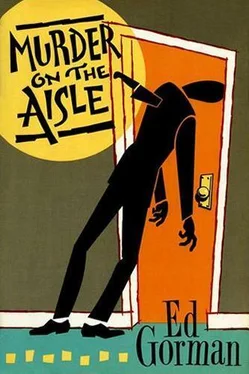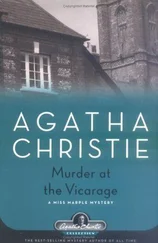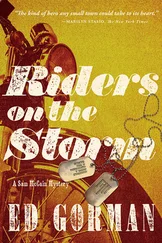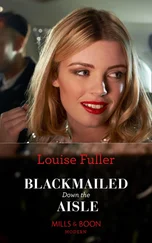This morning Tobin chose to go to the Broadway screening room in the Brill Building. In Manhattan there were several major screening rooms, including the Magno-Penthouse and the Times Square Theater, but Broadway was probably the most plush, with ashtrays at every seat, and an anxious young lady in an elegant gray business suit walking up and down the aisles offering everything except what the eleven men in the seats really wanted.
The movie had been playing for half an hour. It was a big one, too, with Robert Redford and Dustin Hoffman (talk about billing problems) reteamed, this time as a team of private investigators who eventually tumble to the fact that the President of the United States has a daughter who is heavily involved in drug trafficking. Redford was a legendary bore, both on- and off-screen, and Hoffman was a legendary jerk, especially off-screen, so Tobin had to check his prejudices as best he could and simply watch the movie, see if it intrigued him, moved him, made him laugh. But it didn’t because in reteaming these two, the money men had failed to add the key ingredient — a script by William Goldman. The movie obviously wanted to recall All the President’s Men, but without Goldman’s funny-tense dialogue, it failed.
So Tobin sat and watched and tried hard to concentrate because he knew he was considered a Redford-Hoffman hater and he wanted to surprise his viewers by actually liking something these creeps did, but he couldn’t. They were, as usual, dull. (Tobin had earned an unfair reputation as “negative.”) Actually (and he could prove it) 94 percent of all his reviews were positive, and whenever possible he sneaked in reminders of how underused many of our best actors were, from Albert Brooks to Jeff Bridges, from Marsha Mason (goddamn but she was good) to Carol Kane. He liked most actors and actresses and was a big admirer of many adventure films, including the early ones (especially) of Chuck Norris. So he wanted to like this movie, he really did, but it just wasn’t a movie he could go for.
He let his mind drift and of course it drifted back to the murder and he saw bloody Dunphy falling into his arms and saw smirking Huggins all but accuse him of murder and saw the sad satyr Neely waving good-bye and saying “It’s a bitch of a world.” And then he saw himself in bed last night — beyond the magic even of valium — wanting to call his eighteen-year-old son but knowing he was only being selfish, and so for once he didn’t inflict his needs on others, just lay there and thought of Jane and how he’d loved her in his sad and clinging way all those years... But did he love her now?
A penlight went on two rows down. Then to his left another. Penlights were like fireflies in the shadows of the screening room. Ordinarily he hated them — too distracting — preferring to scribble his own notes in the darkness. He could read one out of maybe three lines afterward, but enough to finish his review. Then the penlights went off again — as if some secret signals had been exchanged — and so he drifted back to thinking about the murder again and the list he planned to compile today...
Afterward in the lobby, several of the critics had cigarettes and exchanged quick opinions about the film. One liked it a lot, most seemed indifferent to it. Studio people tried to hover discreetly at the edges of the dialogue but you could see them leaning, leaning in hopes of hearing better.
Chamales, from Manhattan East , was the first one to bring up what they all wanted to talk about.
“Sorry about Dunphy,” he said.
“Thanks.”
Robert Chamales was a huge man who always dressed in worsted vested suits — Orson Welles as corporate executive. Tobin admired his writing and liked him personally, except for the old-fashioned English Oval cigarettes he smoked, which invaded the air like green apple farts. “Know what’s going to happen to the show yet?”
“Not really.”
“Poor Frank Emory.”
Tobin nodded. Chamales and Frank had gone to Yale together. Chamales said, “Your show was the only property he had.”
“Maybe we can find me a new partner — after a decent time, of course.”
As he was speaking, Tobin realized two things: his own crassness (talking about a new partner without expressing any sympathy whatsoever for the fact that his old partner had just been murdered) and that Chamales was proposing himself as Tobin’s new partner.
“Why don’t the three of us have lunch sometime soon?” Chamales said.
“Sure,” Tobin said.
“Why don’t I call Frank to set something up?”
“Fine.” He was almost stunned by how indifferent they both were to Dunphy’s death.
Chamales took out a little leather notebook and wrote out a few lines with a tiny golden pen made even more delicate by his sausage fingers. “There. Fine,” he said, dotting one of his Is the fussy-precise way Oliver Hardy would have. Then he said, “I don’t suppose you’re going to be taking over his screenwriting class, are you?”
“I don’t think so.” Actually, Tobin had forgotten all about the class that Dunphy taught two nights a week at City College.
“I suppose he would have given it up anyway. After the sale, I mean.”
“Sale?”
Chamales glanced at him curiously. “You mean you didn’t know?”
“Know what?”
“That he’d sold a screenplay to Paramount?”
“No. No, I didn’t.”
“Well, he did, and just yesterday afternoon.” He frowned. “Maybe he just hadn’t had time to tell you. I heard about it at the Regency. From his agent. Nearly six hundred thousand and half of it up front.” The bar in the Regency Hotel was one of Chamales’s favorite places. Chamales had once told him that if you sat in there three hours a day and stayed reasonably sober, you could learn half the things that mattered in the entire universe.
“No, I hadn’t heard about it.” Tobin heard his voice shaking, his cheeks flush. So Dunphy had won the contest. There had been an unspoken competition between them that one of them would someday sell a screenplay and therefore become, without question, the dominant member of the duo. Which is just what Dunphy had done. It was pretty damn unbecoming to be jealous of a dead man, but that’s just what Tobin was.
Jealous.
Of a frigging dead man.
He said good-bye to Chamales and went down into the elevator and into a world that was noisy with jingle bells and the sound of the cash register ringing. When a Salvation Army Santa Claus called after him for being such a cheapskate, Tobin flipped him the bird.
1:27 P.M.
Tobin cabbed to Hunter College and got out on the east side of Sixty-Eighth Street. The sun had appeared. Though classes were out for the holidays, there were several coeds with pink winter cheeks and sparkling eyes of recognition (otherwise eminently sane people went absolutely crazy when you were a TV star and wanted to do all sorts of things for and to you).
He got out of the cab with the list Neely had started for him last night stuck between his gloved fingers. Though he had debated several additional names, he had not come up with any firm suspicions, so he couldn’t yet write their names down. He was looking for motives.
Hunter had once invited Nicholas Ray to speak in the sad last days of the director’s life, which was how Tobin recalled where the film department was.
A girl in a ponytail and with a breathtaking little ass was standing up at a moviola when he walked in.
“Hi,” he said.
She turned around. She had an almost unnervingly sweet face, cowy brown eyes and ripe lips, but when recognition came she frowned. Most definitely frowned. As if she’d just spotted Hitler’s son. “You’re Tobin, the TV guy, aren’t you?”
Читать дальше












